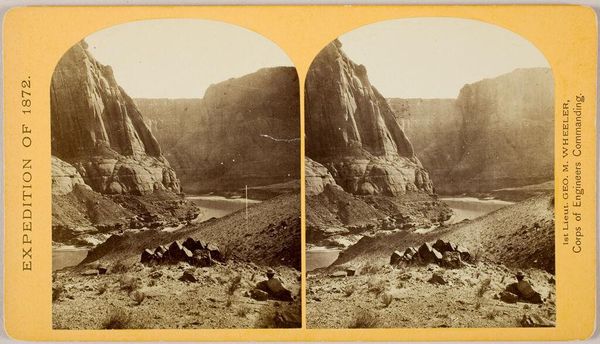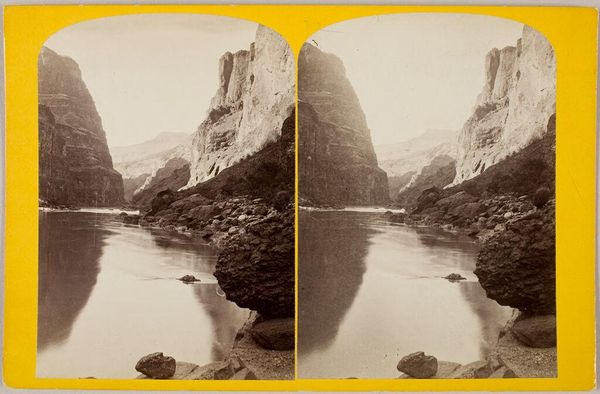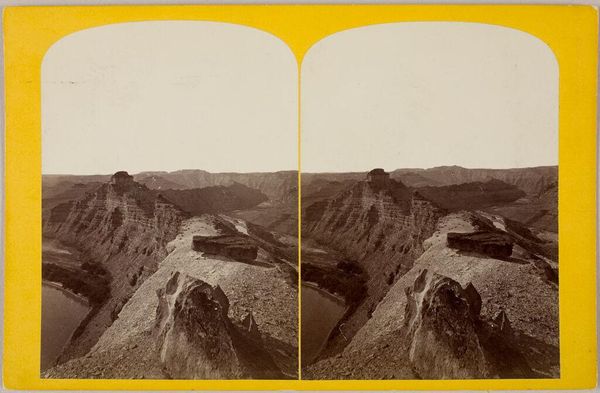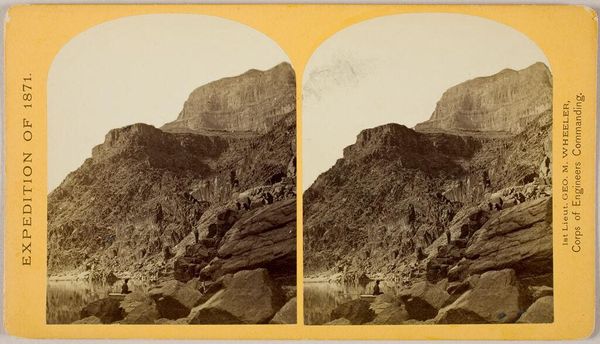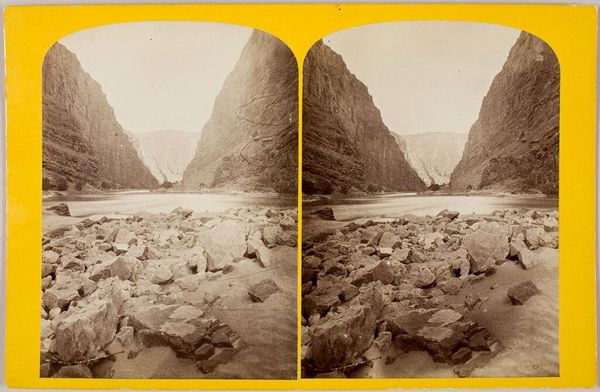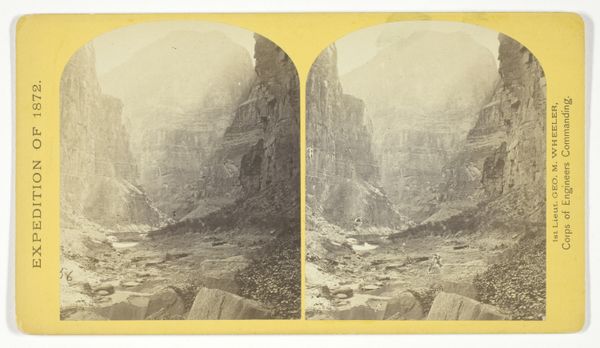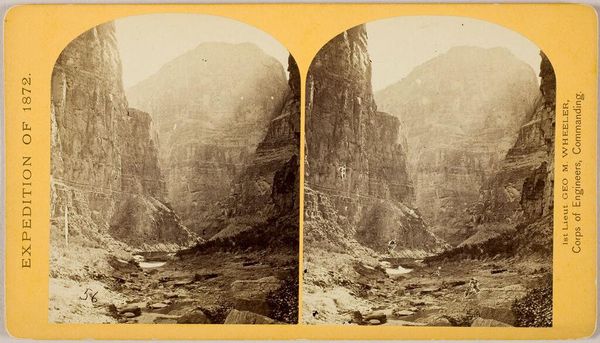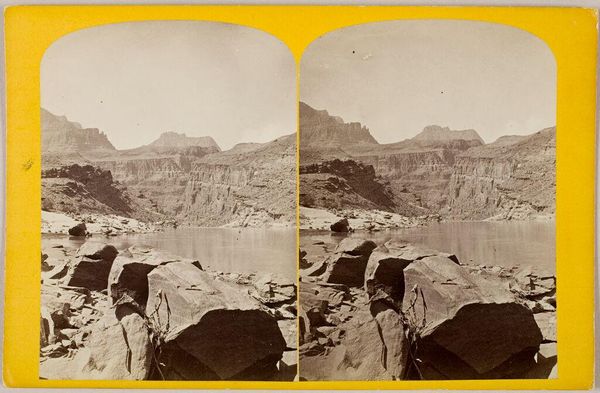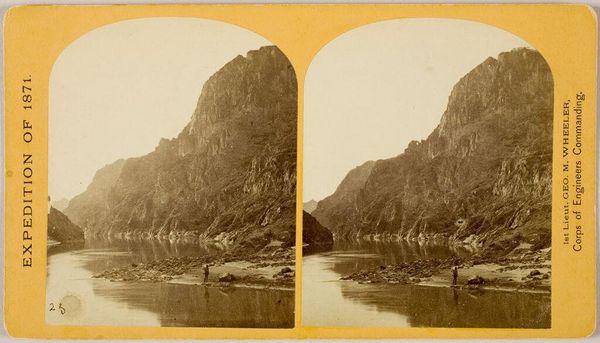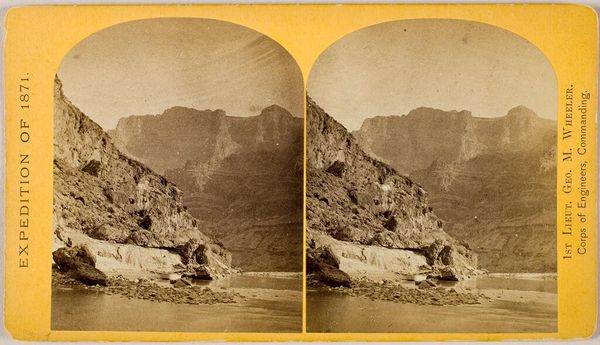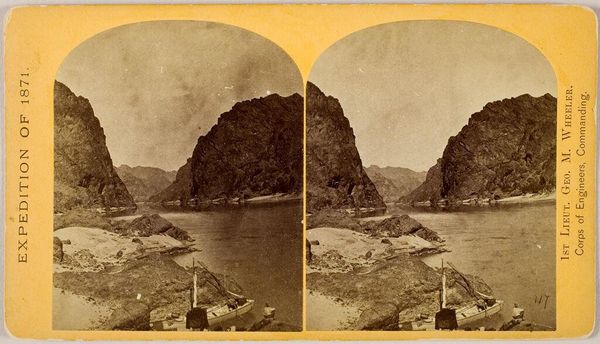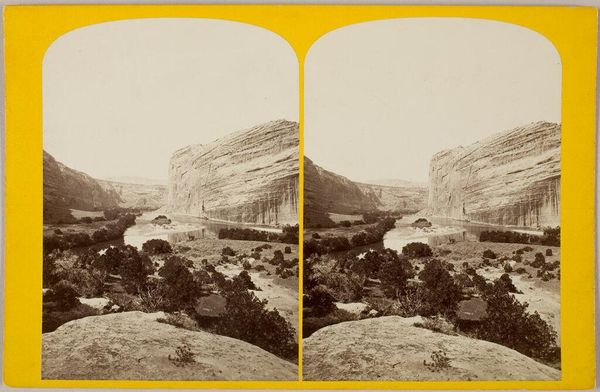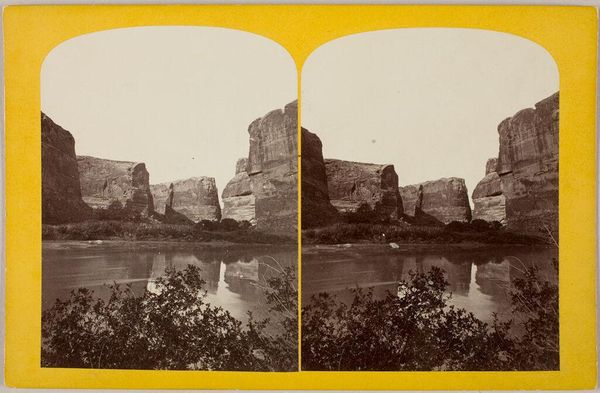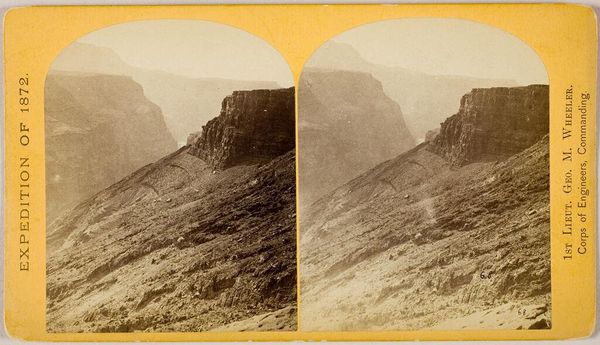
Mouth of the Paria, Colorado River; walls 2.100 feet in height 1872
0:00
0:00
photography, albumen-print
#
toned paper
#
16_19th-century
#
landscape
#
photography
#
hudson-river-school
#
united-states
#
albumen-print
Dimensions: 9.2 × 7.4 cm (each image); 10 × 17.7 cm (card)
Copyright: Public Domain
William Bell made this stereograph, Mouth of the Paria, Colorado River, in 1872 during the United States Geological Survey expeditions led by George M. Wheeler. These expeditions were about mapping the American West, assessing its resources, and securing it for American expansion. Stereographs like this one were a popular form of entertainment. This card would have been viewed through a special device, creating a 3-D effect. The monumental landscape evokes a sense of awe and the sublime, but it also implies a narrative of exploration and conquest. This area was home to Native American tribes, and these images were part of a larger project of surveying and documenting the land in preparation for settlement and resource extraction. To understand this image better, we can consult expedition reports, government documents, and other historical records to learn about the social and political context in which it was made, and to analyze the role that photography played in shaping perceptions of the American West.
Comments
No comments
Be the first to comment and join the conversation on the ultimate creative platform.
